[Butterweeds and Groundsels: The Genera Packera and Senecio East of the Cascade Mts. of Oregon and Washington]
Tall Butterweed, Woolly Butterweed, Woolly Groundsel
Packera cana
Synonyms: Senecio canus, Senecio convallium, Senecio hallii, Senecio hallii var. discoidea, Senecio harbourii, Senecio howellii, Senecio purshianus
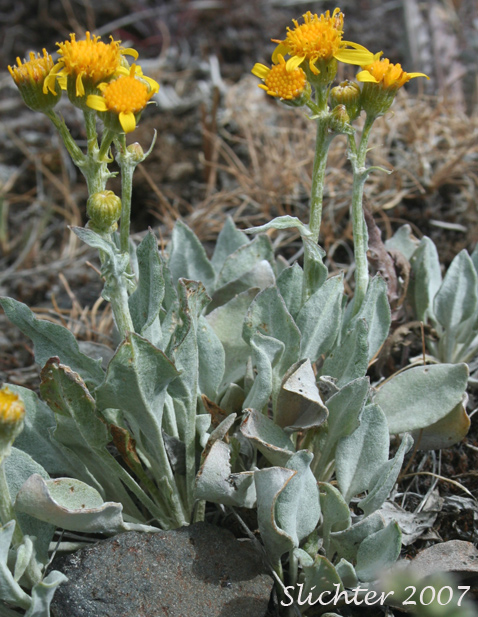 -
- 
The photo at left shows woolly butterweed as seen on slopes near the summit of Simcoe Butte in northern Klickitat County, south-central Washington.......June 16, 2007. The photo at right shows woolly groundsel blooming in open scablands along the Fremont National Recreation Trail #160 on the north side of Twelvemile Peak, Fremont-Winema National Forest......July 16, 2022.
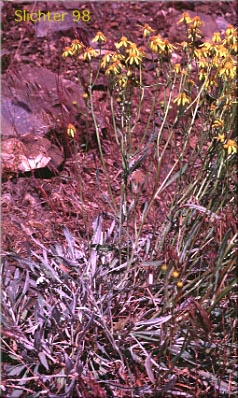 The photo at right shows woolly butterweed as seen from alongside US 26 east of Mitchell, OR........June
23, 1995.
The photo at right shows woolly butterweed as seen from alongside US 26 east of Mitchell, OR........June
23, 1995.
Characteristics:
Woolly butterweed is a fairly easy butterweed to identify due to its dry habitat
and the silvery coloration of the leaves and stems. It is an erect, several-stemmed
perennial from 10 to 40 cm in height. It is fairly strongly white-tomentose,
although this may be reduced with age. The basal and lower stem leaves are tufted
and are narrowly oblanceolate to broadly elliptic or subovate in shape. Individual
leaf blades range from 1 to 7 cm in length and 4 - 30 mm wide and have varied
petioles, from short to long. The stem leaves are linear or oblong in shape
with toothed to pinnatifid margins. The upper leaves are reduced in size and
become almost bract-like.
The heads are several and sunflower-like, arranged in compound corymb. Both
the ray and disc flowers are yellow. Each of the 6-10 individual rays are about
6 - 13 mm long. The involucres are 6-8 mm tall with approximately 15 fleshy
bracts.
Habitat:
Woolly butterweed is found in arid, open and often rocky or sandy places from
the sagebrush plains and foothills to well above timberline in the mountains.
Range:
Woolly butterweed is widespread east of the Cascades from British Columbia
east to Saskatchewan and south to Nebraska, Colorado, and California.
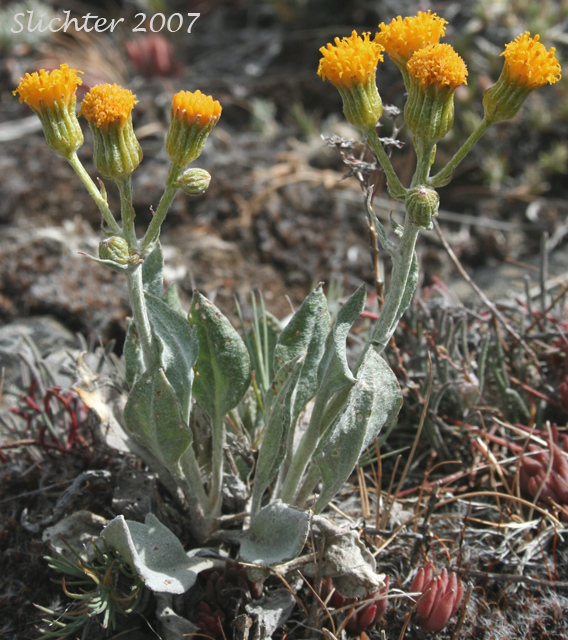 -
- 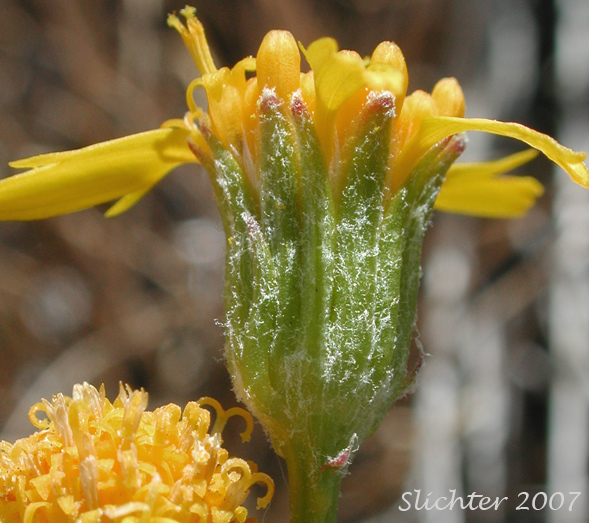 -
- 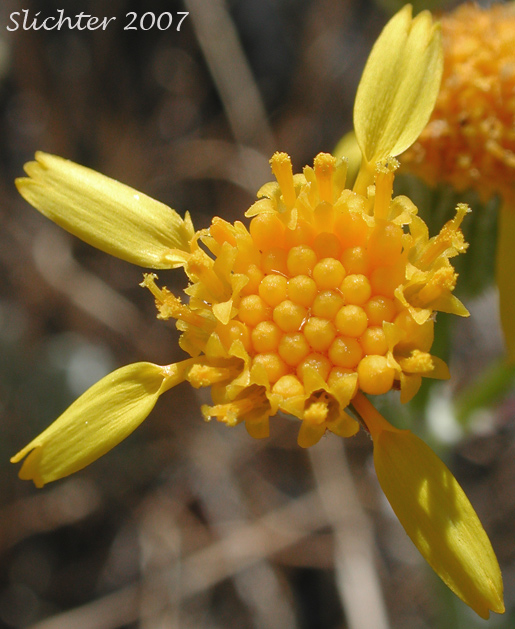
The 3 photos above show close-up views of a rayless woolly butterweed, the scurfy-haired involucre, and a flower head of woolly butterweed as seen near the summit of Simcoe Butte in northern Klickitat County, south-central Washington.........June 16. 2007. (Click each of the 3 photos to see an enlarged verson.) The photo below shows a close-up of the dorsal surface of a basal leaf blade.

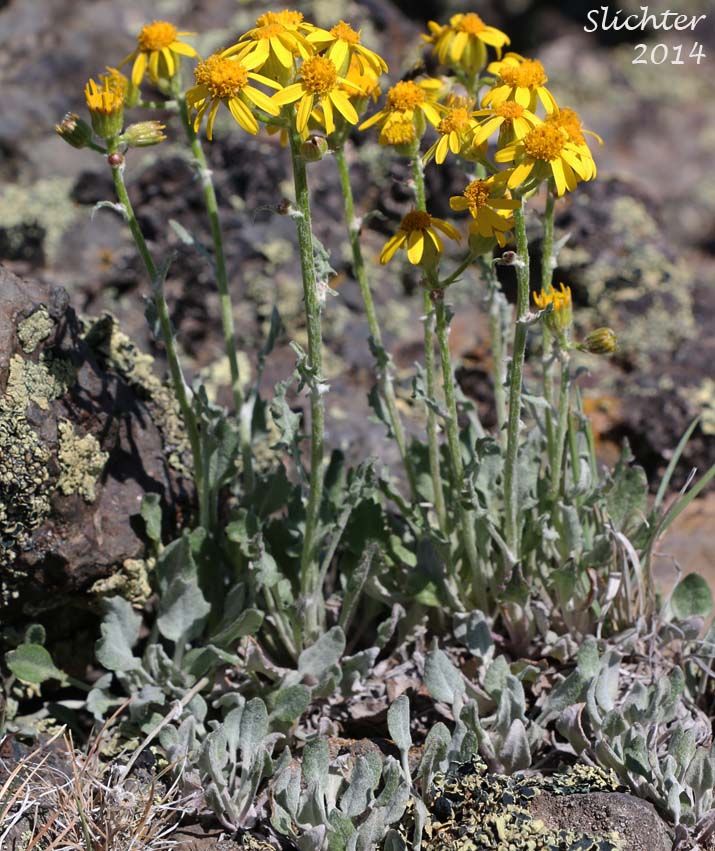 -
- 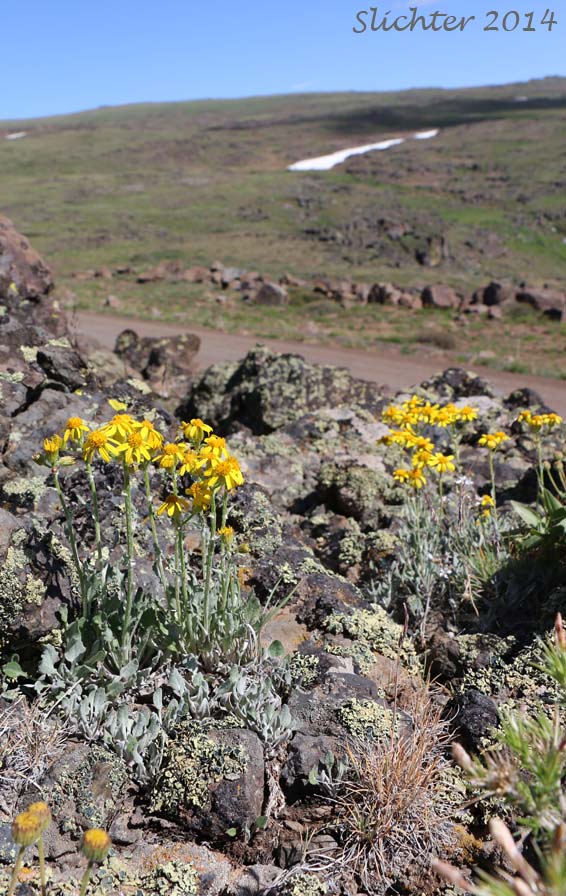
Woolly groundsel blooming along the South Loop Road about one mile downhill to the west from the East Rim Viewpoint, Steens Mountain.........July 9, 2014.
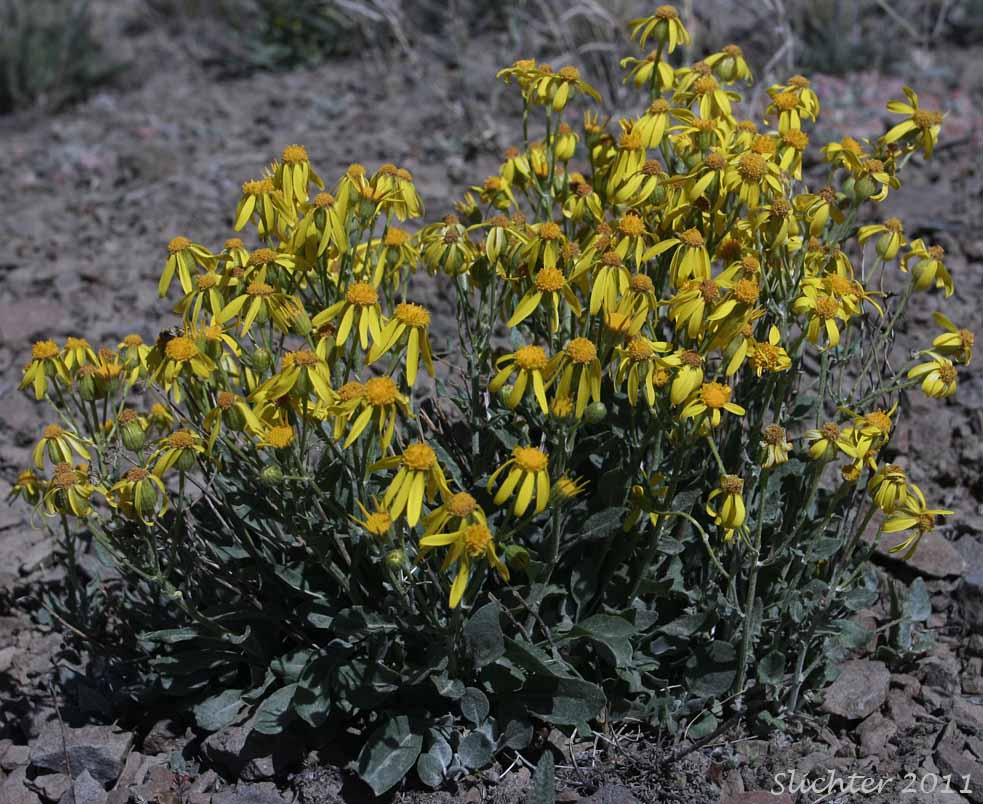
Woolly groundsel blooming at the Kiger Gorge Overlook, Steens Mountain, Harney County, Oregon........August 31, 2011.
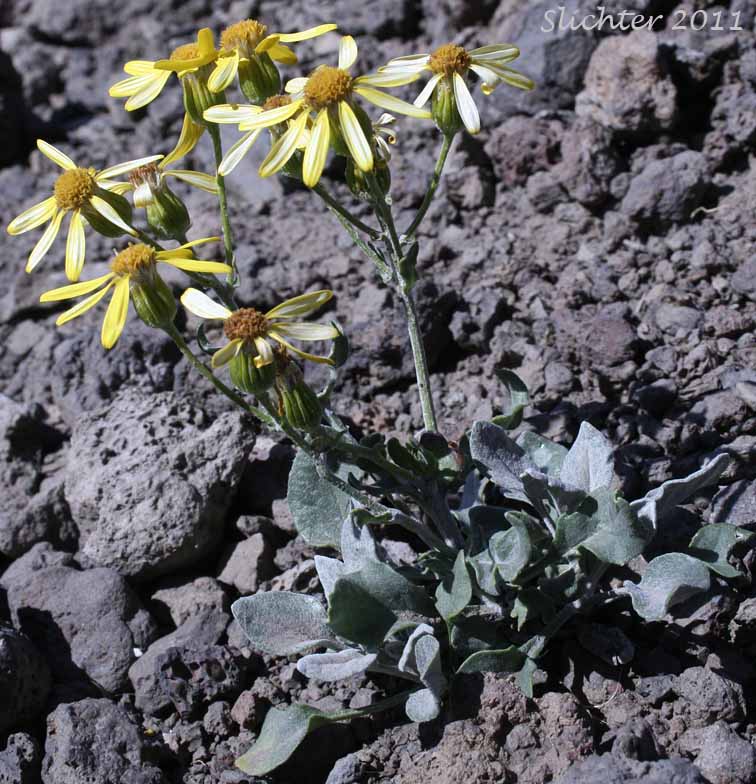 -
- 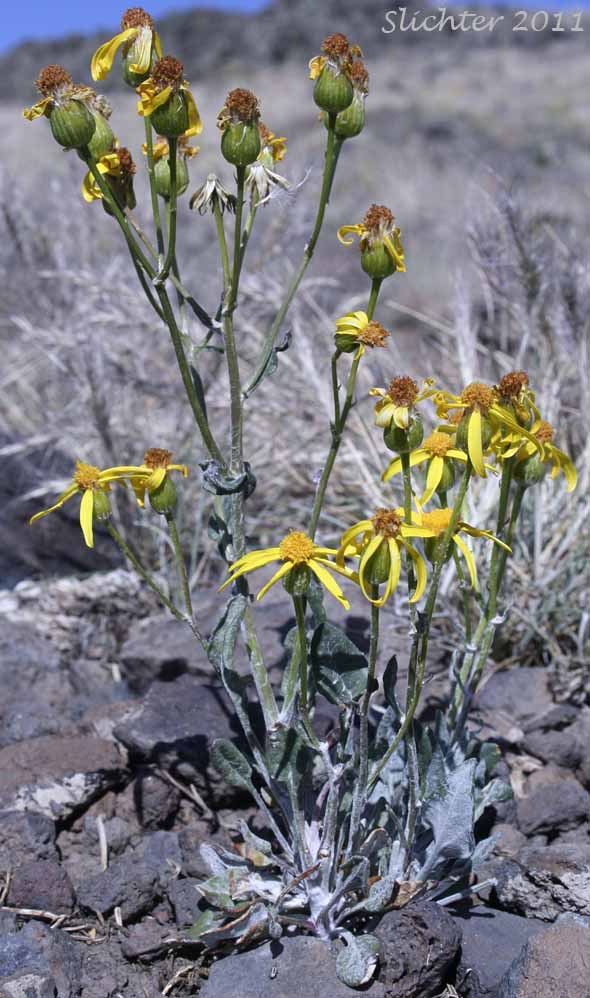
Woolly groundsel as seen atop the Steens Mountain summit, Harney County, Oregon.........September 1, 2011.
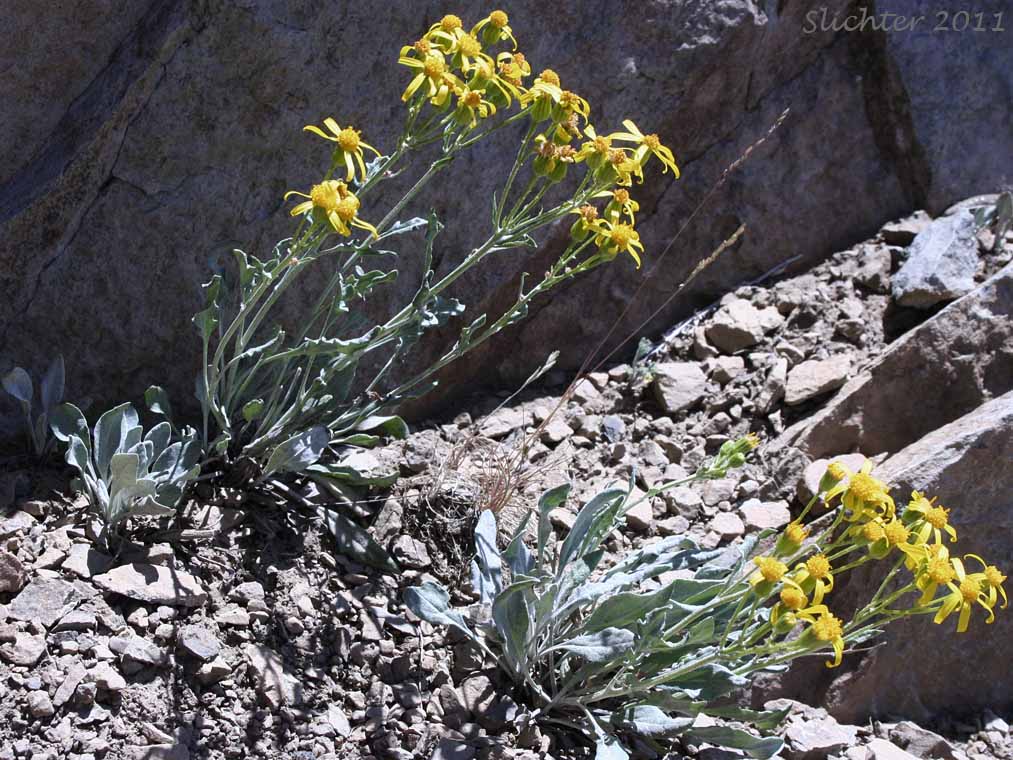
Woolly groundsel as seen on rock outcrops near the summit of Table Rock, Monument Rock Wilderness.........August 2, 2011.
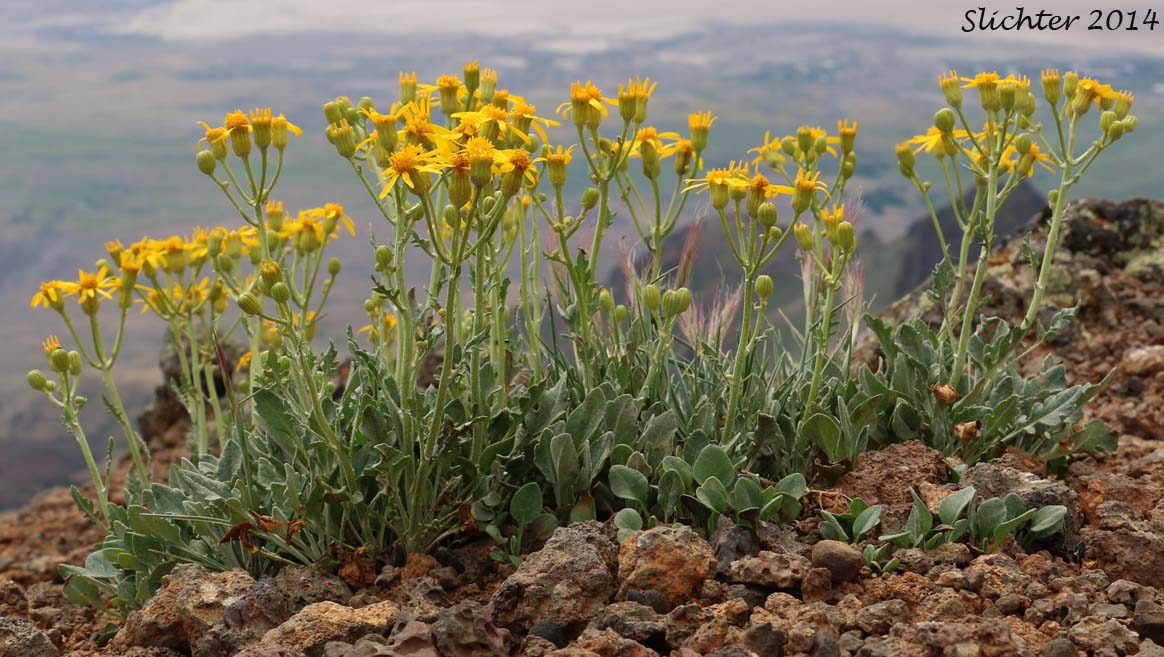
Woolly groundsel in bloom along the crest of the Steens Mountain at the East Rim Viewpoint..........July 11, 2014.
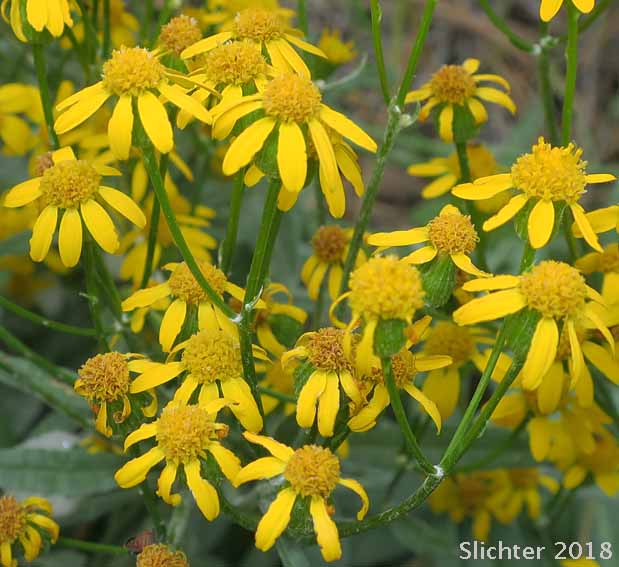 -
- 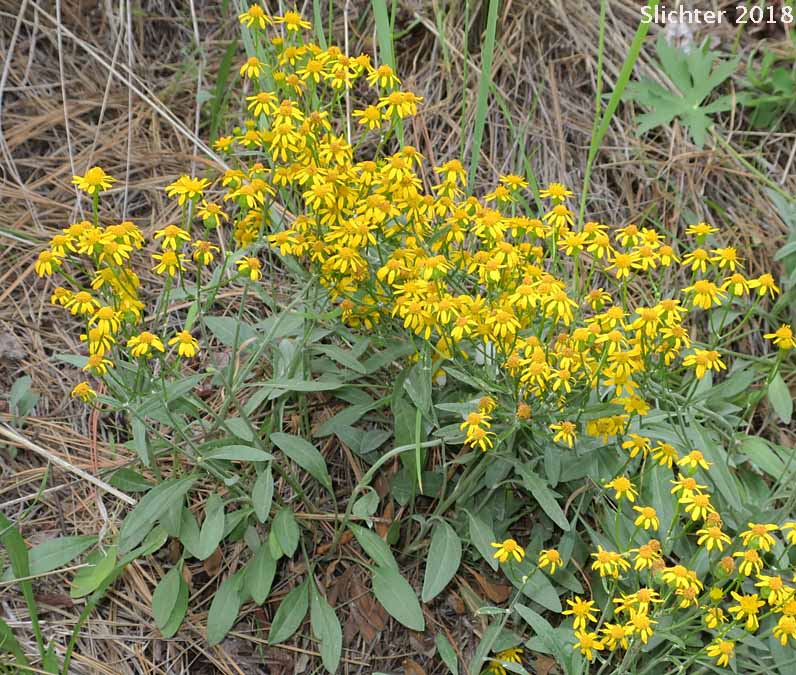
Woolly groundsel blooming on a road cut along Oregon Highway 203 opposite the campground in Catherine Creek State Park, Union County, Oregon......June 10, 2018.
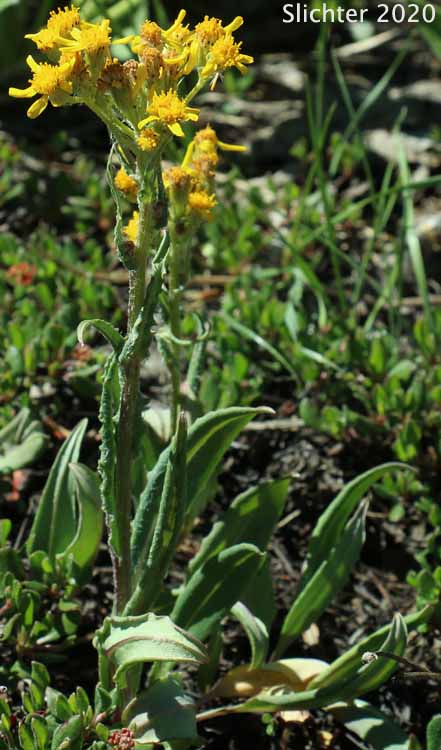 -
- 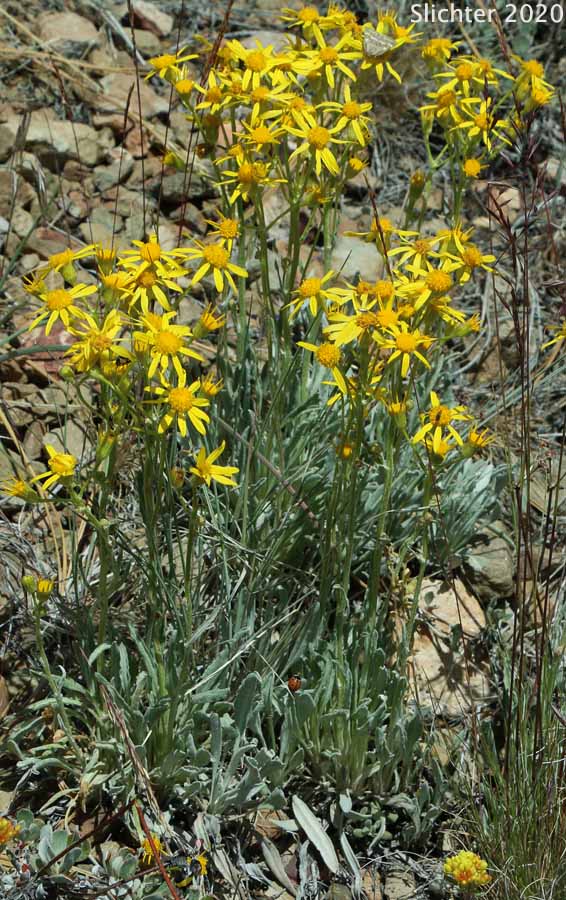
Woolly groundsel blooming near the summit of Hager Mountain, Fremont-Winema National Forest.......June 18, 2020.
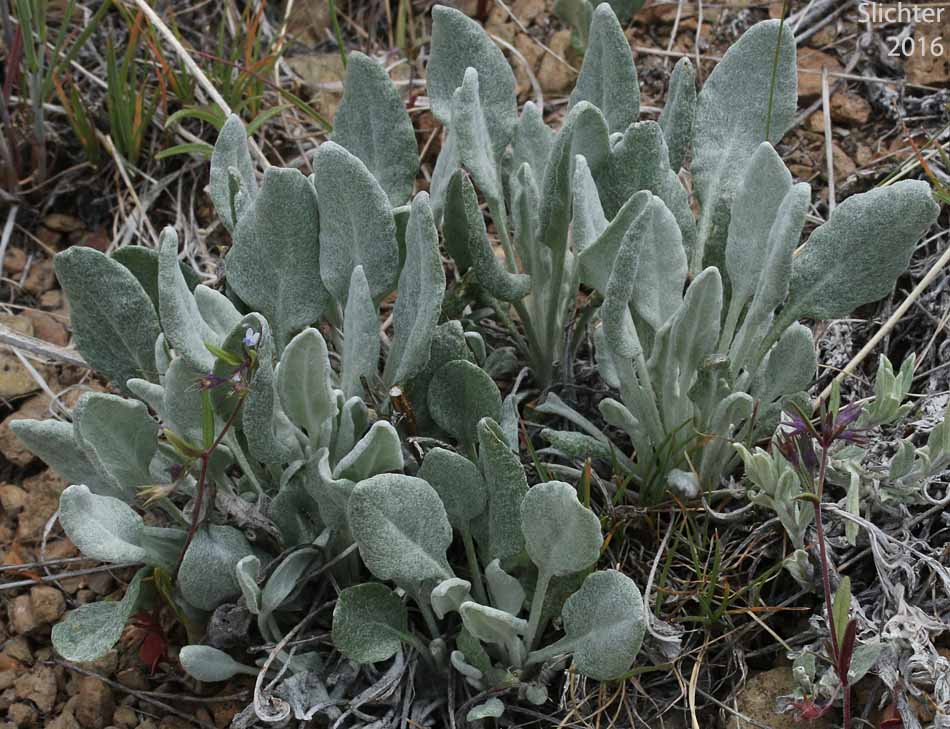
Leaves of woolly groundsel as seen near the summit of Hager Mountain, Fremont National Forest..........May 19, 2016.
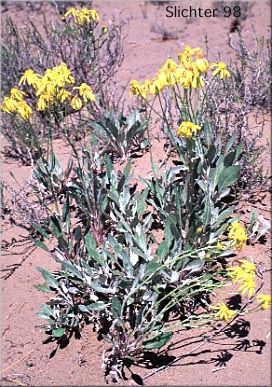
Woolly butterweed as seen in sandy, alkaline soils from the southwestern edge of the Lost Forest, Lake County, central Oregon.........June 23, 1998.
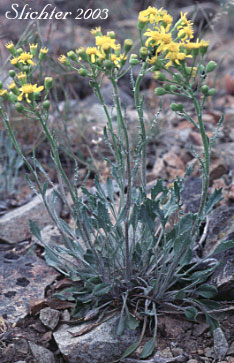
The photo above appears to be a woolly butterweed with some
toothed leaves, especially on the stems. The photos below are from the same
plant, or some found nearby.
The plants were photographed on the summit of Dixie Butte, Malheur N.F........July
4, 2002.
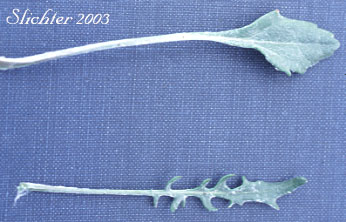
Leaves from the plant shown directly above. The upper leaf
is either a basal leaf or one from the lower stem. The lower leaf is a leaf
from higher on the stem.
Paul Slichter
 The photo at right shows woolly butterweed as seen from alongside US 26 east of Mitchell, OR........June
23, 1995.
The photo at right shows woolly butterweed as seen from alongside US 26 east of Mitchell, OR........June
23, 1995.

